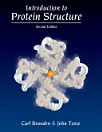Introduction to Structural Bioinformatics
Yang Zhang · Chengxin Zhang · Yang Li · Xi Zhang · Wei Zheng
2026年1月 · Academic Press
电子书
350
页
family_home
符合条件
info
info该图书的上架销售日期为 2026年1月1日。图书上架后,我们才会向您收取相关费用。
关于此电子书
"Introduction to Structural Bioinformatics" offers a complete overview to the fundamental concepts and methodologies of structural bioinformatics and computational structural biology. The book is divided into three sections, beginning with a discussion of the key principles of bioinformatics and fundamental aspects including bioinformatics databases, multiple sequence alignment and machine learning. Section two then moves on to structural bioinformatics, where topics include Monte Carlo simulation, protein structure prediction, RNA structure prediction, and protein design. The final section of the book focuses on experimental structural determination, where chapters focus on techniques including X-ray crystallography, nuclear magnetic resonance and cryo-electron microscopy. This is an ideal guide to the key principles, methods and most up-to-date developments across structural bioinformatics and computational structural biology, providing a comprehensive reference for postgraduate students, instructors and researchers working in these and adjacent subjects.• Discusses cutting-edge AI and deep-learning techniques, including AlphaFold and D-I-TASSER, and their impact on structural bioinformatics• Explores protein and RNA structure prediction• Considers the most recent advances in the field as well as more classical physics-based approaches• Features chapter outlines, definitions, key learning objectives, and case studies throughout the book to aid comprehension
作者简介
Dr Yang Zhang is Professor in the Department of Computer Science, School of Computing, National University of Singapore (NUS). He also serves as Professor and Senior Principal Investigator in the Department of Biochemistry at School of Medicine, NUS, and Cancer Science Institute of Singapore, respectively. Prior to this, Dr Zhang worked as Professor in the Department of Computational Medicine and Bioinformatics and the Department of Biological Chemistry, University of Michigan. Dr Zhang has been teaching graduate courses in bioinformatics for more than a decade. His research interests are in artificial intelligence, deep neural network learning, protein folding, structure prediction, and protein design and engineering. Dr. Zhang is the inventor of many fundamental concepts and methods in structural bioinformatics, including TM-score, TM-align, I-TASSER, and QUARK. Dr. Zhang has received honours including the Alfred P Sloan Award, US NSF Career Award, ASBMB DeLano Award, and University of Michigan Basic Science Research Award.Dr. Chengxin Zhang graduated from the University of Michigan, where he is currently serving as a Research Assistant Professor of bioinformatics. He has authored more than 50 peer-reviewed journals, including 15 for which he is the first and/or corresponding author. His publications cover some of the most widely used open-source algorithms in structural bioinformatics, including US-align, DeepMSA, and COFACTOR for structure alignment, multiple sequence alignment, and structure-based function annotations, respectively.Dr. Yang Li currently serves as a Research Scientist at the National University of Singapore and is a leading expert in AI and structural bioinformatics. Prior to this he was a Postdoc Scholar at the Department of Computational Medicine and Bioinformatics, University of Michigan. Dr. Li has won a number of awards and is among the earliest pioneers who introduced AI and deep-learning techniques into the field of protein structure prediction, triggering a revolution in structural biology and life science.Dr. Xi Zhang obtained his Ph.D. in Condensed Matter Physics from Wuhan University. Subsequently, he served as a postdoctoral researcher in bioinformatics at the University of Michigan. His research primarily centers on experimentally assisted biomolecular structure modeling. Dr. Zhang has a publication record of over 10 peer-reviewed papers, contributing essential tools to the field, such as CR-I-TASSER, a fully automated cryo-EM structure determination pipeline.Dr. Wei Zheng is a Research Investigator at the Department of Computational Medicine andBioinformatics, University of Michigan. Heis a top expert in protein structure prediction and has won the championship of the worldwide CASP contest in protein structure prediction three times since 2018. His main research interests include multiple sequence alignment construction, protein tertiary structure prediction, protein complex structure prediction and protein function prediction.
如何阅读
智能手机和平板电脑
笔记本电脑和台式机
您可以使用计算机的网络浏览器聆听您在 Google Play 购买的有声读物。
电子阅读器和其他设备
如果要在 Kobo 电子阅读器等电子墨水屏设备上阅读,您需要下载一个文件,并将其传输到相应设备上。若要将文件传输到受支持的电子阅读器上,请按帮助中心内的详细说明操作。






